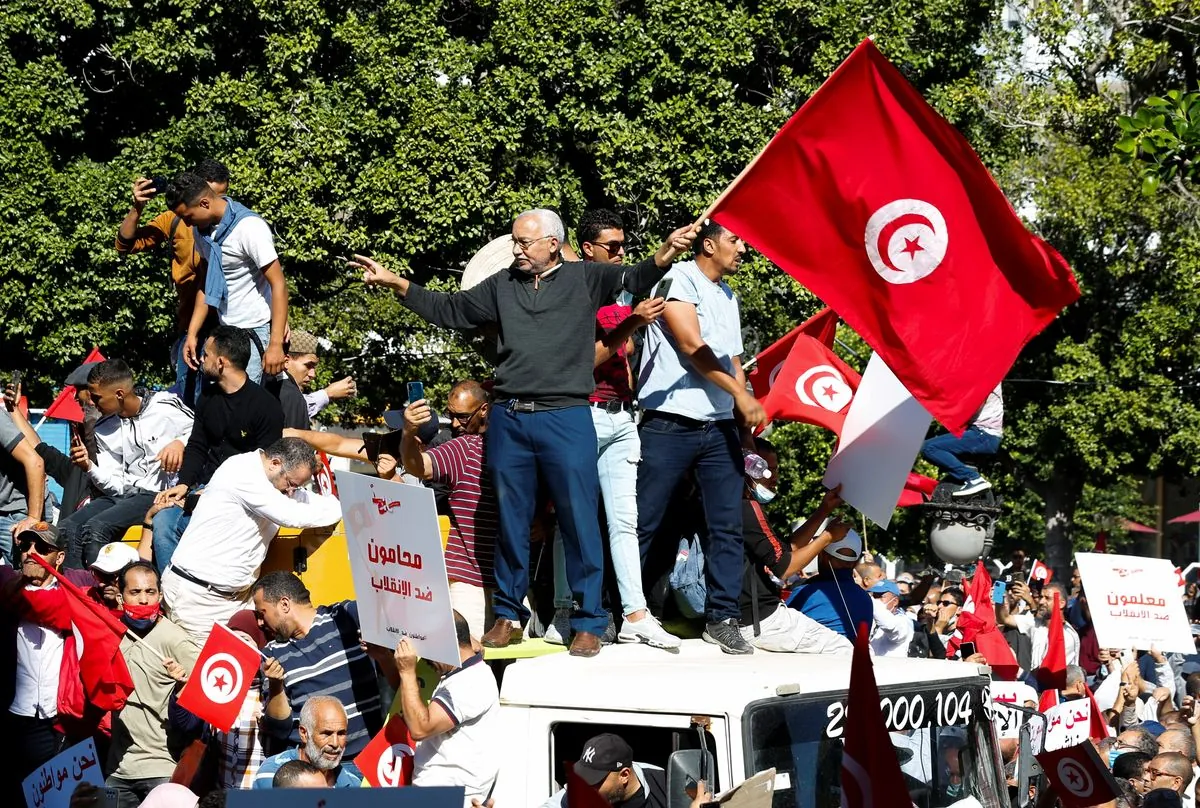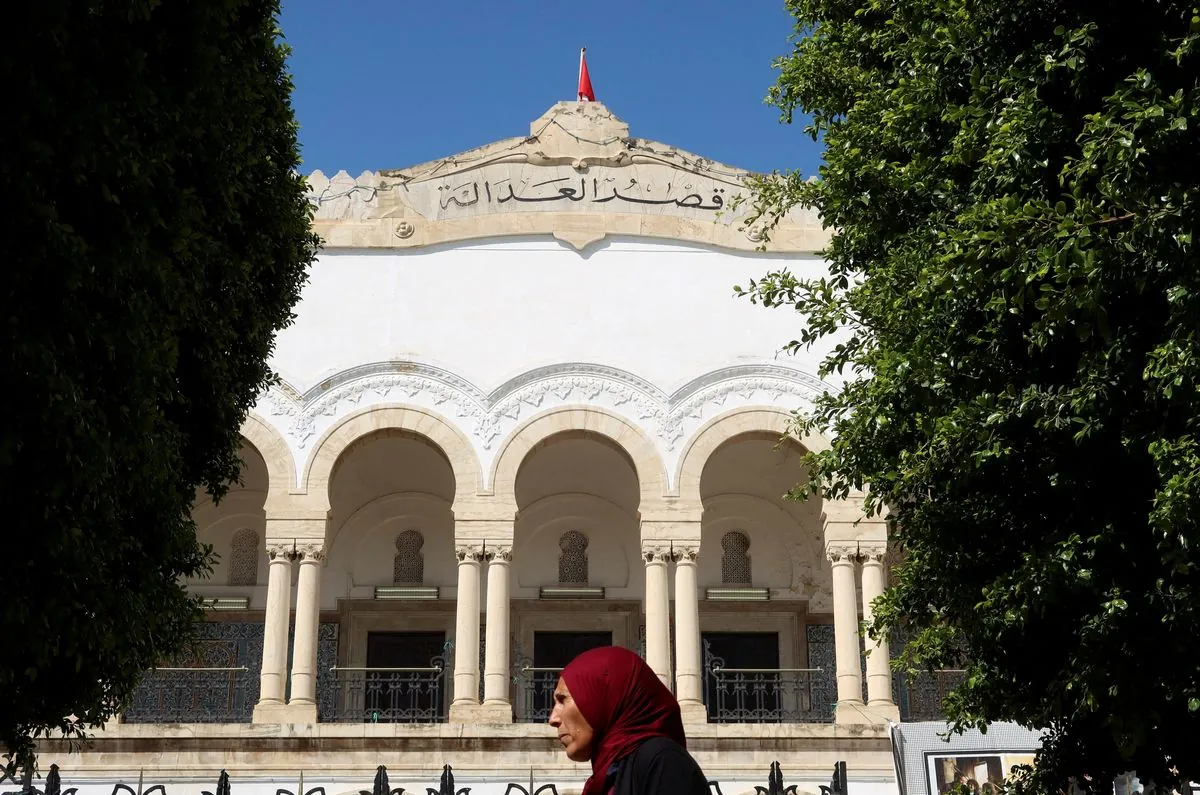Tunisians Rally Against Saied Amid Election Integrity Concerns
Thousands protest in Tunisia, accusing President Saied of election manipulation. With only three candidates remaining and one facing legal challenges, concerns about democratic erosion intensify.

In a significant display of public dissent, thousands of Tunisians took to the streets on September 13, 2024, to voice their opposition to President Kais Saied's governance. The demonstration, one of the largest in the past two years, highlighted growing concerns about the integrity of the upcoming presidential election scheduled for October 6, 2024.
Protesters expressed their discontent with what they perceive as attempts by Saied to manipulate the electoral process. Chants of "Out with dictator Saied" and "No fear, no terror, streets belong to the people" echoed through the capital, reflecting the intensity of public sentiment.
The controversy stems from recent actions by the electoral commission, which eliminated three prominent candidates from the race in August 2024, citing alleged irregularities in their candidacy filings. Despite a court order on September 2 to reinstate these candidates, the commission, whose members were appointed by Saied, rejected the ruling.
This defiance has left only three candidates in the running: Kais Saied, Zouhair Maghzaoui, and Ayachi Zammel. However, Zammel's participation is now in jeopardy following his arrest on September 3, 2024, on charges of falsifying voter signatures – allegations he vehemently denies and attributes to political persecution.

Tunisia, often hailed as the only democracy in the Arab world, has been grappling with political turmoil since Saied began ruling by decree in 2021. This move, described by opposition groups as a coup, has raised alarms about the erosion of democratic gains achieved since the 2011 Tunisian Revolution, also known as the Jasmine Revolution.
The country's journey towards democracy has been marked by significant milestones. Tunisia was the first Arab country to abolish slavery in 1846 and to grant women the right to vote in 1957. The 2014 Constitution was celebrated as one of the most progressive in the Arab world. However, recent developments have cast a shadow over these achievements.
"We are in the street to defend freedoms and rights which are at real risk. The electoral commission should respect the court ruling and end restrictions against candidates. Otherwise, it means an undemocratic election."
Protesters are demanding the release of Ayachi Zammel and all political prisoners, activists, and journalists detained for criticizing Saied. The president, for his part, denies accusations of authoritarianism, asserting that he is combating corruption and defending the nation against "traitors and mercenaries."
As Tunisia approaches this critical juncture, the international community watches closely. The outcome of this electoral process could have far-reaching implications for the country's democratic future and its role as a beacon of hope in the region.


































